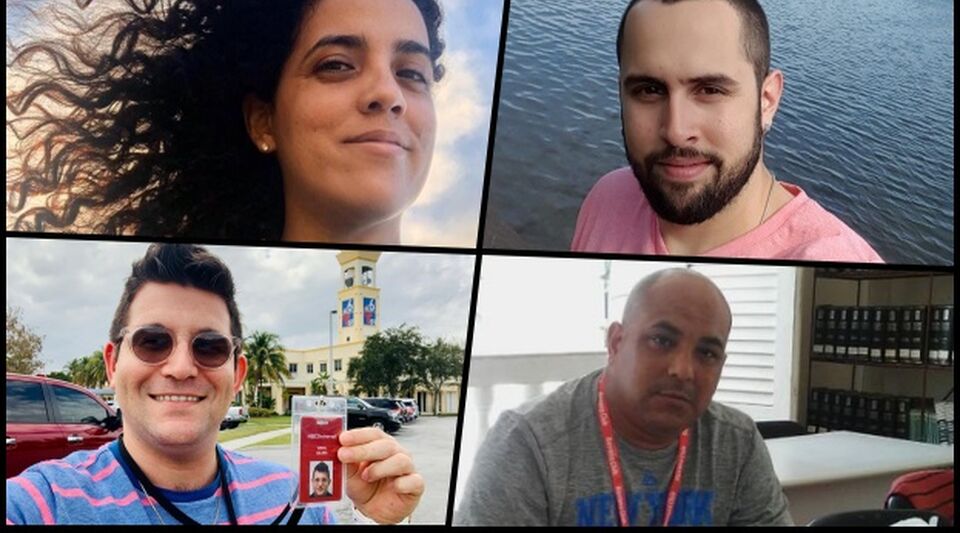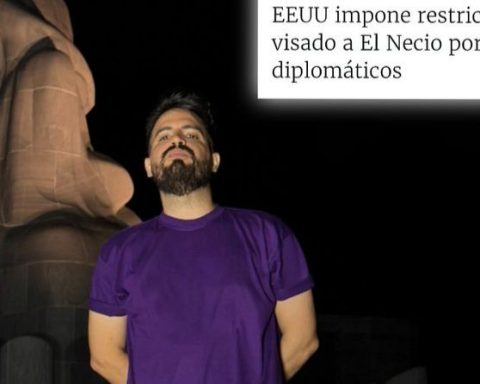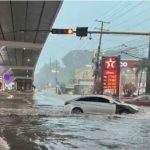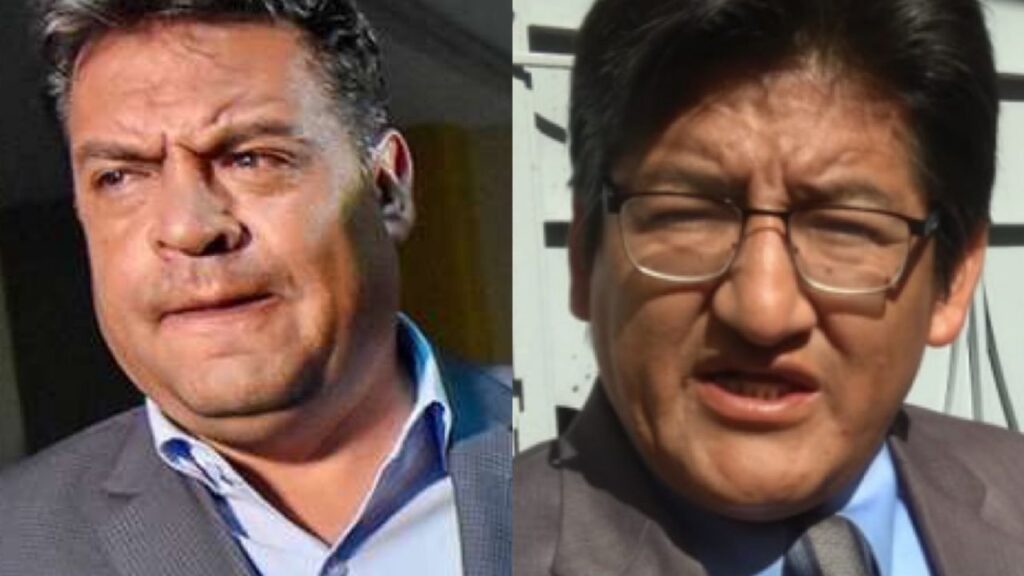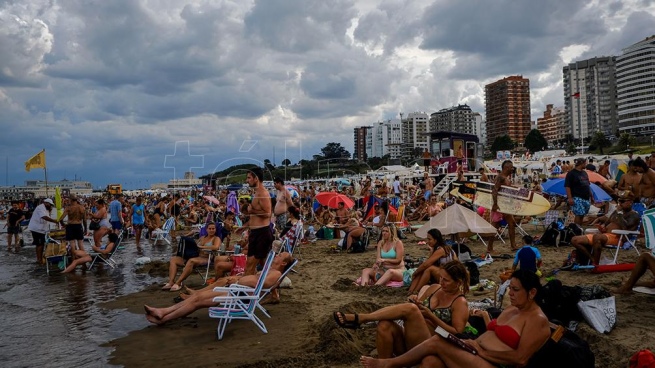Cuban independent journalism has had to reinvent itself several times. The police repression and the draconian legislation against freedom of expression that remain on the Island are not their only obstacles. Emigration is one of the greatest challenges of a press that continues to be persecuted and demonized.
Work teams must be rebuilt from time to time due to the exodus of journalists, editors and collaborators. The bleeding is constant and in the coming months the phenomenon could accelerate due to the new penal code, which plans to punish, more strictly, any project that receives financing from abroad, such as independent newspapers and magazines.
Many reporters do not continue their journalistic activity once they are off the island. The number of exiles in the union could even exceed one hundred in the last three years.
In 2016, the journalist José Ramírez Pantoja starred in one of the most notorious cases of censorship within the official press. The reporter was expelled from his job at Radio Holguín after being accused of reproducing on his blog the words of the vice president of the official newspaper Granma, Karina Brown, who showed visionary concern about a possible social outbreak.
“They left me without a job or livelihood without caring about the years I worked as a journalist”
Unemployed from the official sector, the reporter collaborated with independent media, including 14ymedio, under a pseudonym to avoid further reprisals. However, State Security continued to monitor him closely. In 2019, he requested asylum in the United States. “They left me without a job or livelihood without caring about the years I worked as a journalist,” he denounced then.
Now, Pantoja is an employee at the Cano Health Clinic and assures this newspaper that he would be delighted to resume his “full-time journalistic work in a media outlet.” He considers that “from abroad there is greater freedom and security to exercise journalism in favor of a democratic Cuba without a dictatorship.”
Pantoja enumerates the list of colleagues who have recently left the island, including a well-known reporter “furious defender” of the Cuban regime who now resides in Miami.
In his list there are even directors of provincial radio stations. “In keeping with the social exodus, journalists are not left behind,” he emphasizes.
Mónica Baró graduated from Journalism in 2012 at the University of Havana, and has collaborated with sites such as neighborhood journalism Y The sneeze. He left Cuba in January 2021 for Spain and from there he keeps his eye and pen on the island. His reports, in fact, have been key to putting together the scattered information about those detained on July 11.
“The ideal for me is to do journalism in Cuba, but when I left it was practically impossible to do the type of journalism that I did. What I did in my last months there was activism or resistance”
Baró has been able to continue exercising his profession on the portal CyberCuba and she feels “privileged”, because she knows other colleagues who have not been able to insert themselves in an informative medium. “It is very difficult when you leave Cuba to find a job as a journalist that supports you. There are many stigmas regarding the capabilities of Cuban journalists.”
“The distance, of course, is an obstacle for the exercise of journalism, because nothing compares to the field, to living that reality. No matter how much you keep abreast of what is happening, whether you have family in Cuba or are empathetic, the experience I think is irreplaceable,” he acknowledges.
However, “we must ask ourselves what it is to do Cuban journalism and what is Cuba. Is Cuba just the geographical territory or all of Cuba that is spread throughout the world? Is Cuban journalism only that which is done from the Island or also what is being done from exile?” he questions.
“The ideal thing for me is to do journalism in Cuba, but when I left it was practically impossible to do the type of journalism that I did. What I did in my last months there was activism or resistance.” Baró felt that she could no longer continue reporting as before and refers: between “becoming an activist 80 or 90% of the time or doing journalism from a distance, I chose the challenge of distance.”
He warns that “when you leave you stop being attractive for many spaces, such as training spaces that expect you to return to Cuba to exercise what you learned and that somehow cuts short your career and your training. They are basically asking you to return to a context where your safety is at risk.
“I don’t know if I can sustain journalism for much longer,” he stresses, given the material precariousness that marks the life of every emigrant in his early years.
“I don’t know if I can sustain journalism for much longer,” he stresses in the face of the material precariousness that marks the life of every emigrant in his early years.
Entire newsrooms, journalists who have received international awards and even media directors are among the list of those who have settled abroad. Agencies such as Hablemos Press succumbed to the departure of practically all of their reporters, while other information sites have had to relocate their headquarters to Madrid, New York or Mexico City.
This January, the reporter Yariel Valdés González recounted on his Facebook account his incorporation into the Telemundo 51 work team in Miami. “Every time I passed by the road next to this tower, I told myself: Someday I will arrive,” he wrote before the canal building. “A great dream come true since I arrived in this country, less than two years ago.”
Valdes was released in March 2020 from a Louisiana immigration facility, after a Court of Appeals upheld his political asylum case. While living on the Island, he was a contributor to the magazine Washington Blade, the oldest publication in the United States aimed at the LGTBI community. Now, he smiles in a photo while holding in his hand the identification as an employee of Telemundo 51.
In other cases, emigration has served to rediscover their original profession. Víctor Ariel González was one of the founders of 14ymedio in May 2014, but before that he had graduated as a civil engineer at the José Antonio Echeverría Technological University of Havana, known as Cujae. Several arrests and police operations led him to seek refuge in the United States, where he arrived in 2015.
González got a job as an editor at the information portal Cubanet. His time in that medium, based in Miami and founded in 1994, kept him in contact with independent reporters on the island. “The change was radical” in the way of doing journalism, he recalls. “For me, journalism had been making history” in contact with reality, something that was not possible being outside.
The regime provokes this exodus by hindering informative work with regulations, in the style of Decree 370, the dreaded Law 88 and a long list of regulations that penalize the independent exercise of journalism
As an editor, he had to apply “the scissors” of the corrector on the texts that arrived from Cuba and also write informative notes. “I chose engineering since I was in high school, then I discovered journalism and I liked it, but when I arrived in the United States I was impressed by the roads, the buildings and the structures. I knew that I did not want to dedicate myself to publishing forever.”
“It was a beautiful moment because it was also a personal rediscovery, like taking all the knowledge I had acquired during my engineering degree out of a drawer and realizing that I still had it.” As time went by, engineering “gained prevalence over journalism,” he concludes.
The regime provokes this exodus by hindering informative work with regulations, in the style of Decree 370, the dreaded Law 88 and a long list of regulations that penalize the independent exercise of journalism. State Security is dedicated to reinforcing the harassment of reporters and suggesting that they leave the country to put an end to so much pressure.
For Abraham Jiménez Enoa, leaving the Island was full of drama. For five years a travel ban weighed on him and finally at the beginning of 2022 he managed to travel the country for the first time and land in Madrid and then travel to Barcelona. In a text about his exile, which was published in the magazine leopard, defines Cuba as a place where “independent journalists are treated like terrorists.”
When a journalist leaves, you have to start from the beginning with which he arrives new. That, if it comes, because every day people are more afraid”
Although the column he maintained in that publication was titled From the Malecon and Jiménez Enoa always thought that “it would last until he left Cuba for the first time, that once he set foot in another place, this repository would have to be closed”, now he plans to continue collaborating with Leopard. “But no longer about my confinement, I will leave that room closed and I will go to another.”
“Leaving Cuba is not the same as leaving any other country for the first time,” the journalist points out about the act of crossing national borders, perhaps in a nod to what, almost 80 years earlier, the poet Virgilio Piñera masterfully defined as “the damn circumstance of water everywhere”.
While Jiménez Enoa never ceases to be amazed by the lights he finds in the streets of Barcelona, the bookstores full of titles and the variety of yogurts in the market, thousands of kilometers away, Rafael, a reporter who writes under a pseudonym for an independent media who tries to make his way through the convulsive legal waters of the Island, prepares his escape.
“Training a reporter is something that takes a long time,” says one of the editors of the project Rafael works on and who prefers to remain anonymous. “You must learn to gather information, manage data, take care of sources and get used to the editorial line of a media outlet. When a journalist leaves, you have to start from the beginning with which a new one arrives. That is, if he arrives, because each day people are more afraid”.
After almost a year narrating the streets of Havana, the young man has decided to head for Nicaragua to reach the United States. His previous profession was a cook and in Miami a cousin is waiting for him who drives a truck for a living. Journalism could be just a brief chapter in your life. For the team that remains, their departure makes a hole with a difficult solution.
________________________
Collaborate with our work:
The team of 14ymedio is committed to doing serious journalism that reflects the reality of deep Cuba. Thank you for joining us on this long road. We invite you to continue supporting us, but this time becoming a member of our journal. Together we can continue transforming journalism in Cuba.
